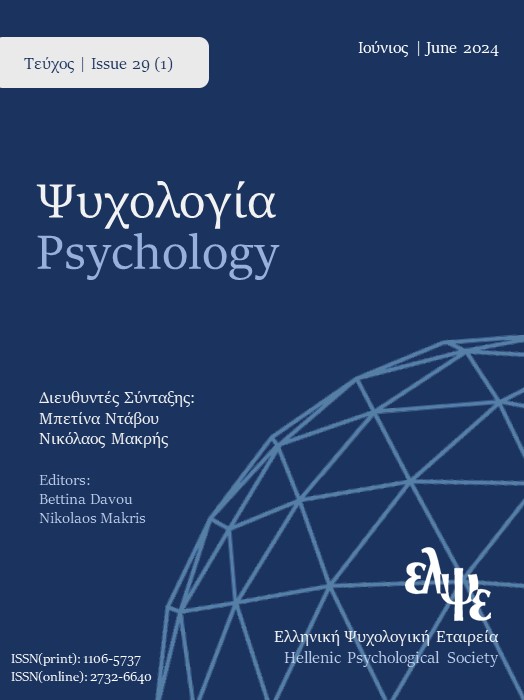The effect of violent electronic games on levels of depression, anger and aggression in late adolescence

Abstract
The present study examined the effect of violent electronic games on depression, anger and aggression in late adolescence, using a quasi-experimental design. The sample consisted of 100 teenagers, who participated in the experimental group or the control group, based on previous engagement with the violent electronic game PUBG MOBILE. Measurements were made in two phases (before and after playing games) using the following research instruments: (a) a demographics questionnaire, (b) Beck Depression Inventory - II (Beck et al., 1996), (c) State Anger Scale (Spielberger, 1988) and (d) Buss- Perry Aggression Questionnaire-Short Form (Bryant & Smith, 2001˙ Buss & Perry, 1992). The experimental group played the aforementioned mobile game for 15 minutes, while at the same time the control group played the non-violent game FIFA Football. The results of the study showed a statistically significant increase in anger, verbal and physical aggression in the experimental group, immediately after engaging in the violent electronic game, while no statistically significant difference was observed, between Time 1 and Time 2 measurement, in the aforementioned variables in the control group. Depression remained the same in both groups before and after gaming. In addition, hours spent playing video games, the importance participants place on playing video games, and depression were found to be predictors of video game addiction. The results demonstrate that engaging in violent electronic games increases players' anger and aggression in the short term and specifically physical and verbal aggression but not indirect aggression. The findings are discussed in the context of the contemporary literature.
Article Details
- How to Cite
-
Kakouris, V., & Kamtsios, S. (2024). The effect of violent electronic games on levels of depression, anger and aggression in late adolescence . Psychology: The Journal of the Hellenic Psychological Society, 29(1), 42–70. https://doi.org/10.12681/psy_hps.33169
- Section
- RESEARCH PAPERS

This work is licensed under a Creative Commons Attribution-ShareAlike 4.0 International License.
The journal PSYCHOLOGY adopts a Platinum open-access policy. Submission, processing or publication costs are waived by the Hellenic Psychological Society. Papers published in the journal PSYCHOLOGY are licensed under a 'Creative Commons Attribution-ShareAlike 4.0 International' licence. The authors reserve the copyright of their work and grant the journal the right of its first publication. Third-party licensees are allowed to use the published paper immediately after publication as they wish, provided they retain the defined by the license copyright formalities, regarding the reference to its author(s) and its initial publication in the journal PSYCHOLOGY. Moreover, any adjusted work should be shared under the same reuse rights, so with the same CC license.


